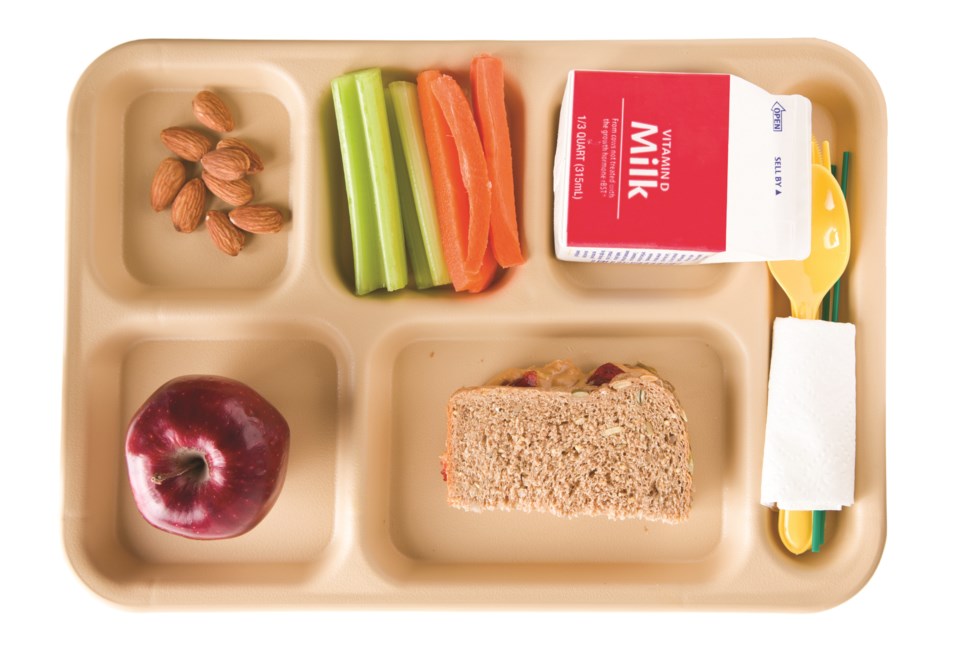With the first day of school just over a week away, thoughts are turning to reading, writing and… lunch?
A recent UBC study, published in Applied Physiology, Nutrition and Metabolism, found that on school days children consume about one-third of their total daily calories at school. However, according to the findings, many are not getting the proper nutrition.
“Before this study, nobody in Canada had looked at actual differences in dietary intake patterns between school hours and non-school hours,” said lead author Claire Tugault-Lafleur, a PhD candidate in the university’s human nutrition program. “If we want to inform nutrition policies and dietary interventions for schools, we have to look not only at foods consumed at school, but also examine the contribution of these foods to a child’s daily dietary intake. Very few people are looking at that.”
The study found that children’s consumption of fruit, vegetables and dairy products or alternatives, was lower during school hours compared to the rest of the school day. Meanwhile, the intake of less nutritious foods, like sugar-sweetened beverages, salty snacks and candies, was relatively high during school hours — causing them to fall short of several dietary recommendations on school days.
When it comes to kids and nutrition, starting early is the name of the game, says Vancouver-based dietician Cristina Sutter.
“I think for the younger grades, we’re really establishing habits,” she said.
A healthy diet is not only important for growing bodies — burgeoning brains need good nutrition too. Eating a healthy, balanced diet helps with attention span, concentration and maintaining energy levels, Sutter said, all things that go hand-in-hand with learning.
Sutter recommends sticking to whole foods as much as possible.
“The granola bars in particular, I feel, are cookies in disguise,” she said, adding that there are many better options out there.
Sutter recommends things such as cheese, fresh fruit or vegetables, hard boiled eggs, whole grain crackers with hummus, or nut or seed butter, and yogurt.
Not all yogurts are created equal. Sutter recommends steering clear of the yogurt in tubes, which often has higher levels of sugar, and opting for a Greek yogurt, which has a bit more protein. She said even the flavoured varieties of Greek yogurt are a better option — plain yogurt can be a tough sell for many kids.
To cut down on prep when it comes to fruit and vegetables, Sutter recommends using the smaller versions — mini cucumbers, sugar snap peas, baby tomatoes and carrots, which don’t need to be chopped or peeled.
“I think that makes the prepping a little bit easier,” she said.
@JessicaEKerr



